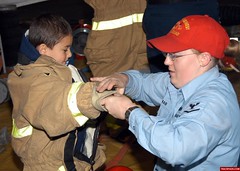Attention Deficit Disorder, also known as ADD is, is thought to be genetic, information collected in various studies. This means that children inherit from their parents, and can take up to a child, even if neither parent has been diagnosed with it ever. Studies continue to discover new things about this disease, and then diagnosing it as correct and the treatment preferred physicians on how to continue to change and will develop intounderstand better. ADD is not limited to children, and many people with this condition live a normal life, without realizing that they have.

Many parents and even doctors sometimes jump to the false conclusion that a child has ADHD. This is sometimes also known as attention deficit hyperactivity disorder or ADHD. Although it is a quick diagnosis, sometimes the symptoms are listed in the rule to add only attributed to allergicReactions or certain foods or ingredients.
Attention Deficit Hyperactivity Disordes
The fact that ADD is a "rapid diagnosis" is a problem, because many times that the diagnosis is correct, and the cause of a problem with a child diagnosed as not the real reason to find differences in behavior or imitation of the classic symptoms ADD. Just because a child is an issue academic, not emotionally and socially automatically mean that the child has ADHD. More typically, children between 8 and 10 yearsold are more often diagnosed with ADD or ADHD. At this age, children, social skills and thus the impact of a child who has not developed these skills as quickly as his peers is easily seen to develop.
One of the things that people, even doctors, to be confused with ADD, the first symptoms of autism or autistic disorder. As such, autism and ADD are significantly different. You can get more information about autism on the websiteAutism explains the milder form of autism known as Asperger syndrome.
There are no surefire cures for ADD or ADHD. Some of the most common treatments prescribed by doctors include drugs such as Ritalin and amphetamines, combined perhaps with a few sessions of psychotherapy. Although a little 'difficult to diagnose because of the variety of symptoms, which we all experience from time to time, an accurate diagnosis is possible and should be done. ADD and ADHDSymptoms include delayed, chronic forgetfulness, unusual anxiety, low self-esteem, anger management problems, impulsivity, chronic boredom, mood swings, difficulty concentrating attention, depression and difficulties in interpersonal relationships.
Scientific studies do not indicate the best overall treatment for ADD and ADHD disorders agree. An important reason is that the disease might be very slight and almost imperceptible to very visible area of aboutup to the breaking point in a class. Many doctors are quick to prescribe medication for treatment, but often very effective treatment, changing the diet of children are met. Removing things like sugary breakfast cereals, soft drinks, biscuits and chocolate from a child's diet can many times be as effective as medications to take depending on the severity of the disease and the willingness of parents to what many may "consider drastic measures" to removethese "points" of the diet of their children. Logic would dictate that it would be much better to try this approach and look at the results that may appear as positive improvements, rather than taking medications such as Ritalin in the throats of tens of millions of our children.
How to treat Attention Deficit Disorder (ADD)
ไม่มีความคิดเห็น:
แสดงความคิดเห็น